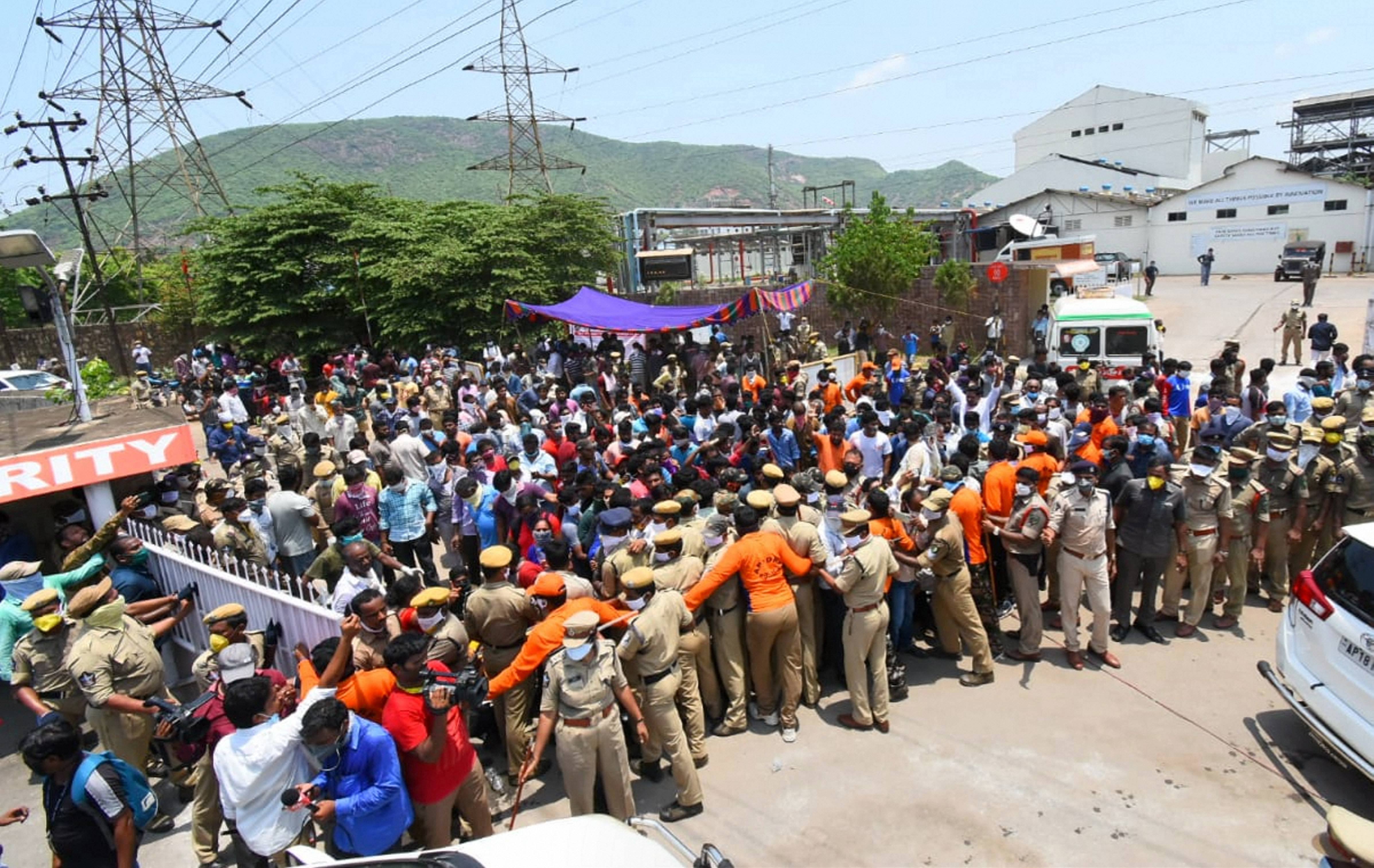The sight of collective human distress seems to have become routine in India. Migrant workers trudging along highways and collapsing from exhaustion or starvation may be associated with the abrupt lockdown for Covid-19, but the routine remains unbroken — long preceding the lockdown and continuing within it, perhaps beyond it as well. So the toxic gas — thought to be styrene — leaking from a plastic-making factory at Visakhapatnam that killed 11 people and injured hundreds close by on May 7 was just one more tragedy compounding the acute distress of the pandemic. The leak may have been caused by the fact that the styrene was not stored at the right temperature. That led to a rise in pressure which damaged a valve and resulted in the disaster. This, however, is still speculation; only an investigation will reveal the truth.
Industrial accidents are far from uncommon in India: sometimes it seems as though the Bhopal horror of 1984 has left no lesson behind. On the same day as the accident in Visakhapatnam, leaking gas from a paper mill injured seven workers in Chhattisgarh; three others were hurt in a boiler blast in a Tamil Nadu thermal power station. The Visakhapatnam gas leak has alerted the Centre to the dangers of suddenly opening up sophisticated manufacturing units after a prolonged lockdown. The National Disaster Management Authority has given certain guidelines and said that the first week of reopening any industrial plant should be treated as a trial period, when every minute section of the factory is tested for safety. Any damage caused by slackness in maintenance during the lockdown can thus be prevented from leading to an accident. This is welcome, procedurally speaking. But the leak in the plastic plant may have another, more telling, cause. The company was carrying on its activity without following environment impact assessment guidelines. More, it had expanded its operations with no permission. With this, perhaps, Indians are on familiar ground. It is possible to carry on industrial activity for a substantial period between 1997 and 2019 without environmental clearance only if both the management and sections of the government ignore regulations. That is not novel; the Union government has shown little interest in environmental requirements. It is a question of values. Human lives, the environment — will they get a better deal after the pandemic?










